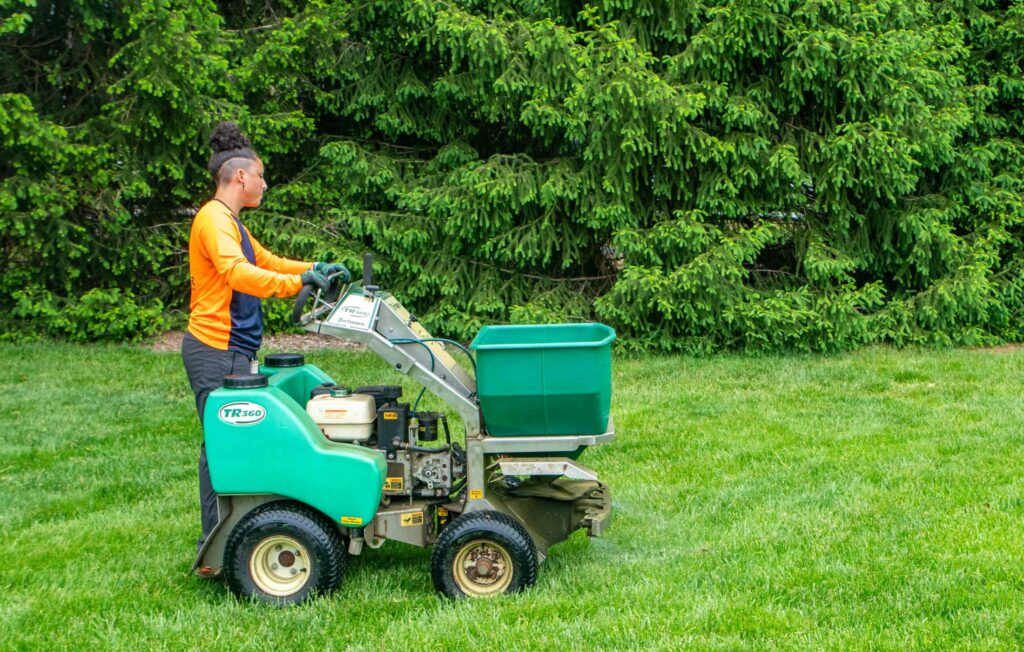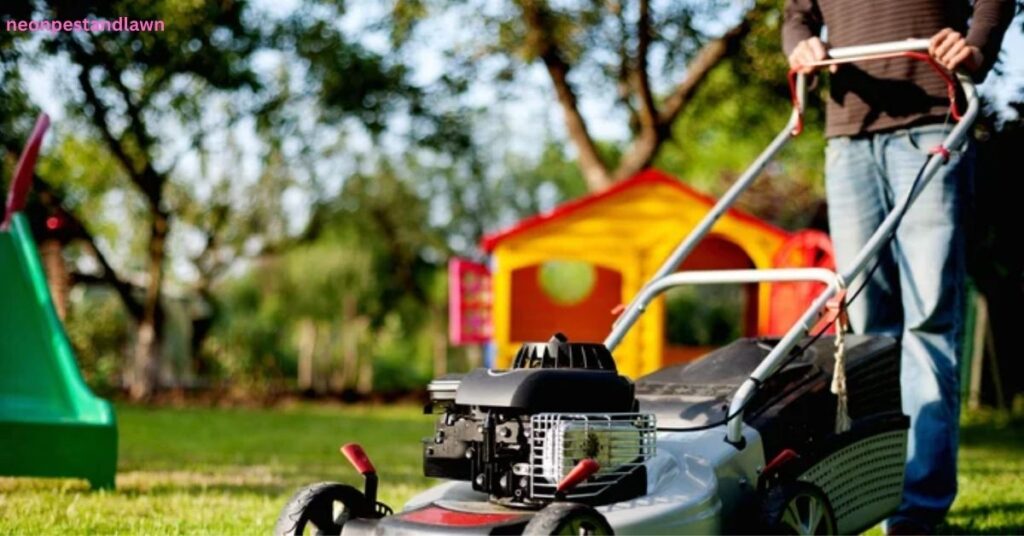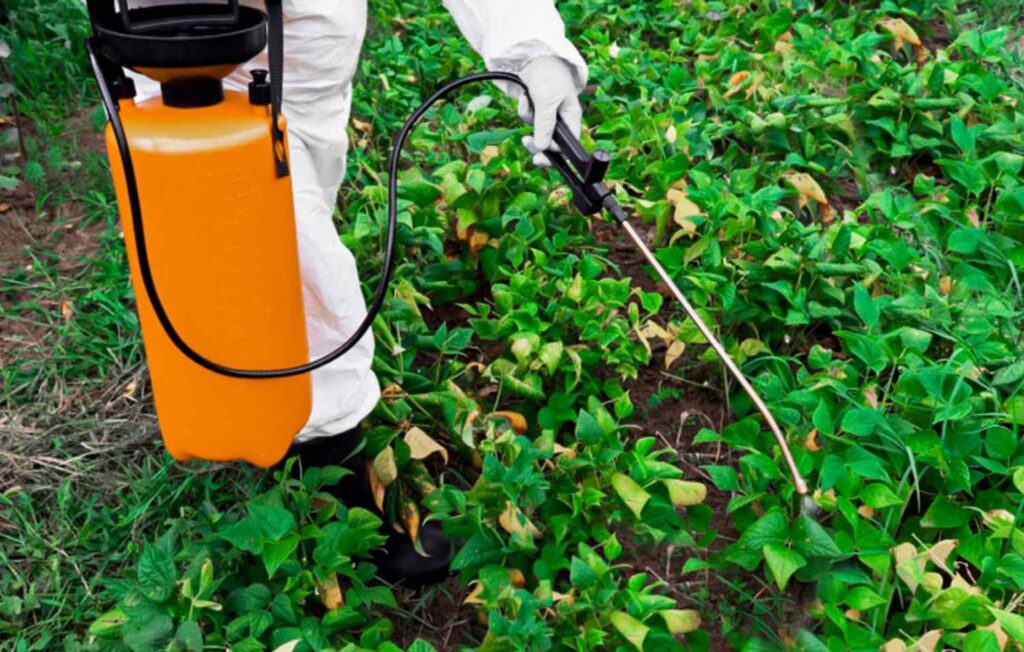Have you ever wondered what a lawn care specialist does every day? It might seem like all they do is mow the lawn, but there’s a lot more to the job. A lawn care specialist needs different skills and knowledge to make lawns look great and stay healthy. Let’s break down what they do and why it matters.
1. Mowing and Trimming
Let’s start with the obvious—mowing. Mowing is one of the main tasks a lawn care specialist does, but it’s not as simple as just pushing a mower. There’s actually an art to mowing. Specialists need to know the right mowing height for different kinds of grass. If you cut too short, you could hurt the lawn and make it easier for pests to attack. If you leave it too long, it can look messy and unattractive.
Trimming is just as important as mowing. It’s all about those finishing touches—making sure the edges are neat and the lawn looks clean. Let’s be real, nothing beats a lawn with perfectly trimmed edges.
2. Fertilizing and Feeding the Lawn
Grass needs nutrients, just like any other plant. A big part of a affordable lawn care specialist’s job is making sure the lawn gets the nutrients it needs. This means knowing when and how to fertilize. Should you fertilize in early spring? How about late fall? And what kind of fertilizer is best for your type of grass? These are the questions a lawn care expert answers every day.
Using too much fertilizer can hurt the lawn, and too little won’t give it the boost it needs. It’s all about finding the right balance. Sometimes, it takes trial and error. No one gets it right every time, and that’s okay—it’s part of learning what works best for each lawn.
3. Weed and Pest Control
No one likes weeds or pests ruining a nice lawn. That’s why a lawn care specialist spends a lot of time dealing with these problems. Weeds like dandelions and crabgrass can quickly take over if they aren’t managed. A specialist knows the best ways to prevent weeds from spreading, whether by using herbicides or pulling them out by hand.
Pests are another big problem. From grubs to ants, pests can do a lot of damage. The key is finding them early. A lawn care expert needs to look for signs of pests and use treatments that work best for each one—whether that means using pesticides or natural methods.
4. Aeration and Seeding
Aeration is another important task that people often forget. Over time, the soil can get packed down, making it hard for water, nutrients, and air to reach the roots. Aeration means making small holes in the lawn so that water, air, and nutrients can get in and help the roots grow.
There’s also seeding. Sometimes lawns get thin or patchy, and seeding helps fill those spots. Overseeding—adding new grass seed to an existing lawn—helps keep the grass thick and healthy. It’s not just about filling empty spots; it makes the lawn stronger and less likely to get weeds or pests.
5. Irrigation and Water Management
Watering is a big part of lawn care, but it’s not as simple as just turning on a sprinkler. How often should you water? What time of day is best? A lawn care expert knows how to set up the right watering schedule based on the grass type, soil, and even the local weather.
Too much water can cause fungus, while too little can make the grass dry up and die. Finding the right balance is tricky—and sometimes the weather makes it harder. But that’s where experience comes in. Lawn care specialists know how to adjust to changes in the weather and keep the lawn healthy.
6. Diagnosing Lawn Problems
Every lawn has its own issues. Whether it’s yellow patches, thinning grass, or pests, a lawn care expert has to figure out what’s going wrong and find the best solution. This takes experience and a sharp eye.
Sometimes the fix is simple, like changing the watering schedule. Other times, it means adding nutrients or dealing with a pest problem. Specialists need to be ready for anything. If something doesn’t work the first time, they have to try a different approach.
7. Seasonal Lawn Care
Lawn care isn’t just a summer job. Different seasons need different kinds of care. In spring, lawns need fertilizing and seeding to recover from winter. During summer, it’s about keeping the lawn hydrated and healthy while dealing with weeds and pests. Fall is for aeration, fertilizing, and getting the lawn ready for winter.
8. Customer Interaction
Being a lawn care specialist isn’t just about working on grass; it’s also about working with people. Talking to customers, understanding what they want, and explaining what’s happening with their lawn is a big part of the job. Good communication builds trust and helps customers understand the work being done.
Customers might ask, “Why is my grass turning yellow?” or “How can I get rid of these weeds?” A lawn care expert needs to answer these questions clearly and without too much technical language. It’s about making sure the customer feels heard and knows what’s going on.

Why Do These Duties Matter?
So, why do all these duties matter for a lawn care specialist? Because it’s not just about making a lawn look nice—it’s about keeping it healthy. A healthy lawn isn’t just good-looking; it’s also good for the environment. Healthy grass helps clean the air, reduce erosion, and even cool down the area around your home.
Plus, a well-kept lawn makes a house feel like a home. It’s where kids play, pets run, and families get together. A lawn care expert makes all of that possible by doing the work that keeps the grass green and thriving.
The Day-to-Day Life of a Lawn Care Specialist
A typical day for a lawn care specialist starts early. The truck is loaded up with mowers, trimmers, fertilizer, and other tools for the day. Then, it’s off to the first customer’s house. Maybe this lawn just needs a simple mow and trim. The next one might need fertilizer or affordable pest control.
Throughout the day, a specialist might run into unexpected problems. Maybe the sprinkler isn’t working right, or a patch of grass looks unhealthy. It’s the lawn care expert’s job to figure out what’s wrong and fix it. By the end of the day, they’ve worked hard, solved problems, and made a lot of lawns look great.
FAQ
Q: What qualifications do you need to become a lawn care expert?
A: You don’t need formal education, but some training in lawn care helps. Many specialists learn on the job, and some get certifications to show their skills.
Q: How often should a lawn be fertilized?
A: It depends on the type of grass, but usually lawns need fertilizer 2-4 times a year. A lawn care expert can make a schedule that works best for your lawn.
Q: What’s the difference between a lawn care specialist and a landscaper?
A: A lawn care expert focuses mostly on keeping grass healthy—mowing, fertilizing, and treating pests. A landscaper designs and installs outdoor features like plants, patios, or walkways.
Q: How do I know if my lawn needs aeration?
A: If your lawn has a lot of foot traffic, feels compact, or has lots of thatch, it probably needs aeration. A lawn care expert can help decide if it’s time to aerate.
Q: Are lawn treatments safe for kids and pets?
A: Most treatments today are safe, but it’s always best to keep kids and pets off the lawn for a while after treatment. Your specialist will let you know when it’s safe to use the yard again.
Final Thoughts
Being a lawn care specialist is about more than just mowing. It’s about keeping the grass healthy, making sure the soil is right, and solving problems as they come up. It’s hard work, but if you love being outdoors and like seeing the results of your effort, it’s really rewarding.
If you’re looking for a professional team to keep your lawn looking its best, reach out to us at best pest control. We’re here to help make sure your lawn is the green, healthy space you’ve always wanted.


